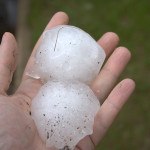Australia’s most-populous state has declared an emergency as a heatwave that’s produced the hottest day on record exacerbates devastating bushfires.
New South Wales Premier Gladys Berejiklian warned of extreme wind conditions and surging temperatures that would make efforts to battle almost 100 fires burning across the state even harder.
“The biggest concern over the next few days is the unpredictability,” she told reporters in Sydney, which was again blanketed with a toxic haze as smoke billowed in from the fires.
The crisis could lead to road closures and diversions, potentially disrupting Christmas travel plans for thousands of Sydneysiders pouring out of the city for a summer break along the coast. The severity and unusually early start to the fire season — which this year began in winter — has intensified the debate about what impact climate change is having on the world’s driest inhabited continent.
The harsh conditions aren’t confined to New South Wales and its capital Sydney. The worst of the heat is in the continent’s interior, with vast swathes of territory experiencing severe heatwave conditions. Adelaide, the nation’s fifth-largest city on the southern coast, is forecast to reach 45 degrees Celsius (113 Fahrenheit) on Friday, while the nation’s capital Canberra is bracing for three consecutive days above 40 degrees Celsius.
While Sydney is forecast to have cooler conditions from Friday, firefighters are concerned strong winds may spread the state’s fires that have burnt out more than 2.7 million hectares and close to 800 homes. Six Australians have died since the fire season began, while dust and particles from the blazes have reached the glaciers of New Zealand, staining them red.
On Tuesday, the average maximum temperature across Australia reached 40.9 Celsius, beating the previous record of 40.3 Celsius on Jan. 7, 2013, according to the country’s weather bureau. The heat has worsened a years-long drought in eastern Australia and placed pressure on nation’s creaking energy grid as people switch on electricity-guzzling air conditioners.
As the fire crisis worsened this week, many social media users and some news outlets criticized Prime Minister Scott Morrison for taking an unannounced vacation with his family to Hawaii just days after labeling the blazes a “national disaster.”
Morrison’s conservative government has been a strong advocate for the coal industry and steadfastly opposes putting a price on carbon. Environmental groups have criticized him for refusing to link the intense heat and fires to climate change.
Protesters rallied outside of Morrison’s official Sydney residence on Thursday, calling for Australia to cut fossil-fuel use and exports, and increase support for firefighters and Indigenous land management techniques that have successfully reduced bushfire threats for thousands of years.
Was this article valuable?
Here are more articles you may enjoy.

 CoreLogic Report Probes Evolving Severe Convective Storm Risk Landscape
CoreLogic Report Probes Evolving Severe Convective Storm Risk Landscape  MGM Resorts Sues US FTC to Stop Investigation of Casino Hack
MGM Resorts Sues US FTC to Stop Investigation of Casino Hack  Viewpoint: The Impact of Behavioral Health on Workers’ Comp
Viewpoint: The Impact of Behavioral Health on Workers’ Comp  Oregon Schools Sued for $9M After Young Girl Allegedly Raped
Oregon Schools Sued for $9M After Young Girl Allegedly Raped 